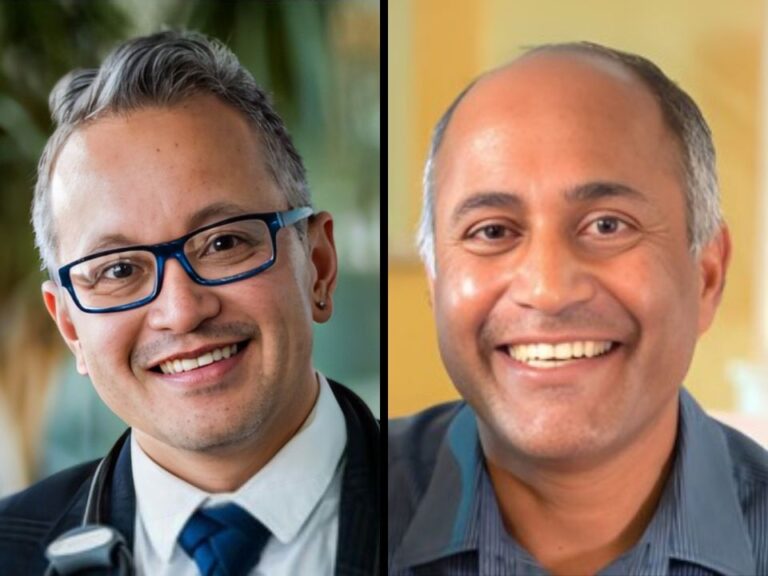The prevalence of workplace harassment, discrimination, and retaliation experienced by women physicians, especially women of color, is alarmingly high.
The National Academies of Sciences, Engineering, and Medicine Consensus Study Report on Sexual Harassment of Women, published in June 2018, documented the depth and breadth of the problem.
According to a survey referenced by the NASEM Consensus Study Report, up to 50% of female students reported having experienced sexual harassment by faculty or staff during medical school; another study of academic medical faculty found that 66% of women had experienced gender bias during their careers.
The NASEM Consensus Study Report boldly states that the academic workplace (i.e., employees of academic institutions), “has the second highest rate of sexual harassment at 58% (the military has the highest rate at 69%) when comparing it with [the] military, private sector, and the government.”
Within the past three years, since the NASEM report was published, we have observed a steady increase in research publications, perspectives (here and here) and editorials (here and here) demonstrating the problem is rife throughout academia, in numerous specialties, and across the medical profession at large.
The Cancer Letter’s coverage of prominent oncologist Axel Grothey’s unethical sexual relationships at the Mayo Clinic underscores that behaviors of misconduct are often related to a person’s authority, power, sex, gender, race, and/or ethnicity (The Cancer Letter, May 28, 2021).
While the recent stories of female and/or underrepresented in medicine physicians’ lived experiences covered in the medical and lay media have brought greater visibility to intersectionality and the impact of sexism and racism in medicine, these narratives represent a mere fraction of the physicians who have such experiences.
Formal reporting by students or faculty and staff in academia is rare—typically the percentages are in the single digits according to a number of studies—because reporting such behaviors carries considerable costs, both personal and professional.
Harassing and discriminatory behaviors are often manifested by direct superiors and others in powerful leadership positions, making it difficult to confront perpetrators. The risk of retaliation is real, often leading to even more harm.
Survivors suffer in many ways, from loss of self-esteem, poor physical and mental health, and low job satisfaction to constructive discharges, damaged reputations, and the banning of talented clinicians from the workforce.
Apart from the direct trauma imposed on survivors, these injustices contribute to the perpetuation of ongoing gaps in pay, fewer career opportunities, and lack of career progression, and they can complicate workplace dynamics that derail career development and employment at every stage.
Academic faculty and institutional leadership in medicine remain predominantly white (63.9%) and male (58.6%), exacerbating gender/sex and racial/ethnicity disparities to career advancement and success for those URiM. Furthermore, a toxic work environment not only adversely impacts the clinician being targeted but can also impact employees and coworkers who witness or hear about the experience and the quality of patient care.
With increasing evidence that women and the URiM are disproportionately subjected to microaggressions, macroaggressions, harassment, and discrimination, it is crucial that actions be taken to support and retain these talented clinicians.
Without a concerted effort on numerous fronts, these abusive behaviors will continue unabated. Various solutions have been promoted for systemic injustice in medicine. A recently published systematic review and meta-synthesis of multi-sector evidence on organizational interventions found that organizational leadership, commitment, and accountability were key drivers of organizational change.
The NASEM Consensus Study Report proposes five major categories (encompassing 16 specific tactics) of interventions for preventing sexual harassment: 1) create diverse, inclusive, and respectful environments; 2) improve transparency and accountability; 3) diffuse the hierarchical and dependent relationship between trainees and faculty; 4) strive for strong and diverse leadership; and 5) provide support for the target.
It is this last one—support for the target—that we are particularly concerned about, as it has been sorely lacking to date. Targets of abuse often find themselves isolated, traumatized, in utter disbelief and despair, without adequate support or sufficient guidance to forge a path forward to keep them safely and gainfully employed.
Physician Just Equity addresses misconduct
Born from our own experiences, a dedicated team of 31 physicians and surgeons comprise Physician Just Equity (PJE), an organization that engages in advocacy, education, and research.
Twenty-five members of the team are dedicated to providing direct peer support. By offering an independent and safe space for peer support, PJE aims to “Champion a Balanced Resolution” for our colleagues navigating workplace conflicts. PJE accomplishes this goal by utilizing virtual platforms to provide peer-support sessions, present workshops, supply resources, and collect data.
PJE also produces the Voices Unheard podcast, co-hosted by Melissa Blaker, DO and Pringl Miller, MD. The podcast features physicians and surgeons who are working to create a just, equitable, and safe workplace.
The bimonthly program offers robust discussions that confront the challenges we face and bring the lived experiences of courageous clinicians into the fore.
How PJE works directly with colleagues
A physician or surgeon seeking peer support fills out a PJE electronic intake form that captures information about the person’s demographics, practice specialties, work experience, work environment, engagement with institutional and legal resources, and the nature of the workplace conflict they are experiencing.
This intake data is then used to assemble a peer-specific support team of individuals with similar self-reported demographics, history with workplace conflicts, and other experiences relevant to the peer’s situation.
Formal reporting by students or faculty and staff in academia is rare—typically the percentages are in the single digits according to a number of studies—because reporting such behaviors carries considerable costs, both personal and professional.
PJE “peer supporters” are dedicated to paying forward their collective wisdom to support peers who often feel shame, aimlessness, isolation, and fear; fear that they will lose access to the career that they have worked so hard to enter.
We then schedule a virtual meeting with the peer and the specific peer-support team assembled to discuss the peer’s conflict, concerns, and career goals. The PJE team strategizes with the peer, providing relevant resources, sharing experiences, and creating a rallying network that helps empower the peer and address the person’s stated personal needs and professional goals.
A “peer navigator” is assigned to each peer and serves as a sponsor and the point of contact with the rest of the PJE peer-support team over the course of the conflict or until the peer no longer feels PJE support is needed. If a particular peer requires more than one session due to the complexity of their situation, future meetings are scheduled. To date, peer support has been very well received and fills a critical void:
“This has been one of the most beneficial meetings I have had in the entire process. The members are knowledgeable on practical interactions with attorneys, ACGME, and sponsoring institutions. I wish I had interacted with this group earlier,” said one peer.
The aggregated quantitative and qualitative data recently collected by PJE provides some evidence of the experiences and concerns of clinicians navigating institutional conflicts, highlighting the need for robust solutions to mitigate these experiences. Testimonials from PJE peers affirm the process and value of the support we provide:
“The validation to emotional response of such an experience and acknowledgement of value provided by multiple high achieving, well regarded individuals, is the fortification necessary in navigation of this all-too-common scenario.”
James Baldwin, the American novelist and activist, said: “Not everything that is faced can be changed; but nothing can be changed until it is faced.” PJE exists to help clinicians face the injustices threatening their careers, with the broader aim of profoundly changing the culture of medicine. PJE initiatives aim to increase awareness about workplace inequities and provide the necessary support that empowers survivors to navigate their conflicts effectively. PJE advocates for a safe, dignified, equitable, and inclusive workplace for all clinicians, present and future. As one of our colleagues said to us after her session with her PJE peer-support team:
“It is time that doctors stand up and recognize discrimination every time we witness it. We will never have equity in healthcare delivery until we have equity among healthcare professionals.”
Note: If you are a physician or surgeon in need of peer support and would like to engage with a PJE peer support team, please contact us here.
References:
- National Academies of Sciences, Engineering, and Medicine. 2018. Sexual Harassment of Women: Climate, Culture, and Consequences in Academic Sciences, Engineering, and Medicine. Washington, DC: The National Academies Press. doi: https://doi.org/10.17226/24994.
- Jagsi R, Griffith KA, Jones R, Perumalswami CR, Ubel P, Stewart A. Sexual Harassment and Discrimination Experiences of Academic Medical Faculty. JAMA. 2016;315(19):2120-2121. doi:10.1001/jama.2016.2188
- Dzau VJ, Johnson PA. Ending Sexual Harassment in Academic Medicine. N Engl J Med. 2018;379(17):1589-1591. doi:10.1056/NEJMp1809846
- Jagsi R, Fuentes-Afflick E, Higginbotham E. Promoting Equity for Women in Medicine – Seizing a Disruptive Opportunity. N Engl J Med. 2021;384(24):2265-2267. doi:10.1056/NEJMp2104228
- Atkinson H, Anu Anandaraja A, Stella Safo S. The gender harassment we experienced sank our medical careers. STAT News. October 21, 2020.
- Jain S, Salles A, Arora A. Let’s stop passing the buck on sexual harassment in academic medicine. The Cancer Letter, Vol.47 No.25, published online June 25, 2021.
- Carolan A, Goldberg P. Prominent GI oncologist Axel Grothey was forced out of Mayo Clinic for unethical sexual relationships with women he mentored. The Cancer Letter, Vol.47 No.21, published online May 28, 2021
- Paturel, A. Sexual harassment in medicine. AAMC. February 14, 2019. Available at: https://www.aamc.org/news-insights/sexual-harassment-medicine.
- Jagsi R, Griffith KA, Jones R, Perumalswami CR, Ubel P, Stewart A. Sexual Harassment and Discrimination Experiences of Academic Medical Faculty. JAMA. 2016;315(19):2120–2121. doi:10.1001/jama.2016.2188
- Choo EK, van Dis J, Kass D. Time’s Up for Medicine? Only Time Will Tell. N Engl J Med. 2018;379(17):1592-1593. doi:10.1056/NEJMp1809351
- Acosta DA. Achieving excellence through equity, diversity, and inclusion. AAMC. January 14, 2020. Available at: https://www.aamc.org/news-insights/achieving-excellence-through-equity-diversity-and-inclusion.
- Mousa M, Boyle J, Skouteris H, et al. Advancing women in healthcare leadership: A systematic review and meta-synthesis of multi-sector evidence on organisational interventions. EClinicalMedicine. 2021;39:101084. Published 2021 Aug 12. doi:10.1016/j.eclinm.2021.101084
- National Academies of Sciences, Engineering, and Medicine. Available at: https://www.nap.edu/resource/24994/Interventions%20for%20Preventing%20Sexual%20Harassment%20final.pdf
















